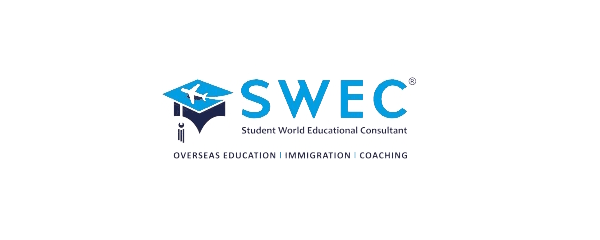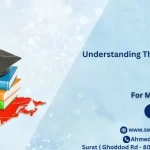Table of Contents
Canada has consistently been a preferred destination for international students and good reasons. Renowned for its top-tier education system, cultural diversity, and safe environment, Canada offers a holistic educational experience. International students not only gain academic knowledge but also benefit from multicultural exposure and opportunities to build global networks. The country’s welcoming policies and pathways to post-graduation work permits and permanent residency further solidify its position as a global education hub.
When applying for a Canada student visa, the term “Designated Learning Institution (DLI)” becomes pivotal. A DLI is an institution approved by the Canadian government to host international students. Only students enrolled in these institutions are eligible for a study permit. Choosing the right DLI not only ensures compliance with visa requirements but also impacts future opportunities like Post-Graduation Work Permits (PGWPs).
The aim of this blog is to highlight the importance of DLIs in the student visa process. We’ll provide guidance on how to choose a suitable DLI, ensuring that prospective students are equipped with the knowledge needed for a smooth visa application process.
Understanding What a Designated Learning Institution (DLI) Is
A Designated Learning Institution (DLI) is any post-secondary institution in Canada that has received approval from the provincial or territorial government to admit international students. Without an acceptance letter from a DLI, students are ineligible for a Canada student visa.
DLI List by Province/Territory
Each province and territory in Canada maintains its list of DLIs. Here are some examples:
- Ontario: University of Toronto, Seneca College, Humber College.
- British Columbia: University of British Columbia, Simon Fraser University, Langara College.
- Quebec: McGill University, Université de Montréal, Dawson College.
It’s crucial to verify the DLI number and program eligibility when applying. This ensures you meet all legal requirements for a study permit.
Importance of Enrolling in a DLI
Enrolling in a DLI is a mandatory step for obtaining a Canada student visa. Beyond the visa process, studying at a DLI assures access to quality education and facilitates eligibility for post-study opportunities like PGWPs. It also builds credibility with immigration authorities and simplifies the application process.
At SWEC Visa Services, we specialize in guiding Indian students to make informed decisions about their education in Canada. From selecting the right DLI to preparing your visa application, our experts are here to ensure your study abroad journey is seamless and successful. Contact us today to explore your options and take the first step toward a brighter future!
Why DLIs Matter in Your Education Journey
Choosing the right DLI impacts your overall experience as an international student. Here’s why:
- Legal Compliance: A valid acceptance letter from a DLI is a visa requirement.
- Quality Education: DLIs adhere to Canadian education standards.
- Post-Graduation Opportunities: Only graduates from certain DLIs are eligible for PGWPs, paving the way for work and residency in Canada.
Role of a DLI in the Student Visa Process
Acceptance Letter Requirement
One of the fundamental requirements for a Canada student visa application is an acceptance letter from a DLI. This document confirms that the student has been admitted to a recognized institution in Canada, making it a prerequisite for obtaining a study permit.
Key components of an acceptance letter include:
- Program Details: Information about the course or program the student will be pursuing.
- Start and End Dates: To determine the duration of the student’s stay in Canada.
- DLI Number: A unique identifier proving the institution is recognized by the provincial or territorial government.
Study Permit Issuance
DLIs play a crucial role in the issuance of study permits. Immigration, Refugees, and Citizenship Canada (IRCC) relies on DLIs to:
- Validate Applications: Ensure that the student has been genuinely admitted to the institution.
- Confirm Enrollment: During the visa process, DLIs may provide updates to IRCC about the student’s enrollment status, ensuring compliance with immigration rules.
Post-Graduation Work Permit (PGWP) Eligibility
Enrolling in a DLI directly impacts a student’s eligibility for a Post-Graduation Work Permit (PGWP), which is a critical pathway to gaining Canadian work experience and eventually permanent residency.
- Eligible Institutions: Not all DLIs offer programs that qualify for PGWP. It is essential to verify this before applying.
- Advantages of PGWP: Allows international students to work in Canada after completing their studies, enhancing career prospects and providing valuable work experience.
How to Choose the Right DLI
Factors to Consider
Selecting the right DLI is crucial for academic success and long-term goals. Key considerations include:
- Program Relevance: Ensure the institution offers programs aligned with your career aspirations.
- PGWP Eligibility: Confirm that the DLI provides PGWP-eligible programs.
- Location: Consider the province or city’s climate, culture, and job opportunities.
- Living Costs: Evaluate tuition fees, accommodation, and overall expenses to plan your budget effectively.
Research Tools
- IRCC’s Official DLI List: The IRCC website maintains an up-to-date list of DLIs, which is an invaluable resource for prospective students.
- Consulting Experts: Seek guidance from education consultants like SWEC Visa Services to make an informed choice. Their expertise can help you find institutions that align with your goals and streamline your visa application process.
Key Differences Between DLIs and Non-DLIs
Advantages of DLIs
- Visa Eligibility: Only students enrolled in DLIs are eligible for a Canada student visa.
- PGWP Opportunities: DLIs offer government-approved education that qualifies students for post-graduation work permits.
- Assurance of Quality: DLIs adhere to Canadian education standards, ensuring a high-quality learning experience.
Risks of Choosing a Non-DLI
- Ineligibility for Study Permits: Students applying to non-DLIs cannot secure a Canada student visa.
- No PGWP Eligibility: Programs from non-DLIs do not qualify for post-graduation work permits, limiting career and residency opportunities.
- Potential Visa Rejection: Applying for a study permit with an acceptance letter from a non-DLI can lead to visa refusal.
Here is a detailed and informative table illustrating the differences between Designated Learning Institutions (DLIs) and Non-Designated Learning Institutions (Non-DLIs):
| Aspect | Designated Learning Institutions (DLIs) | Non-Designated Learning Institutions (Non-DLIs) |
| Definition | Institutions approved by provincial or territorial governments to host international students. | Institutions that are not recognized by the government for hosting international students. |
| Eligibility for Study Permit | Students admitted to DLIs are eligible to apply for a Canada student visa (study permit). | Students cannot apply for a study permit with admission to a non-DLI. |
| Post-Graduation Work Permit (PGWP) | Many DLIs offer programs that qualify graduates for a PGWP, providing work experience in Canada. | Programs from non-DLIs do not qualify for PGWP, limiting post-study work opportunities. |
| Assurance of Quality | DLIs adhere to high Canadian education standards, ensuring quality academic programs and support services. | Quality of education and support services are not regulated or guaranteed by the government. |
| Recognition | Widely recognized by employers and educational institutions across Canada and internationally. | Credentials may not be recognized by employers or other institutions in Canada. |
| Examples of Institutions | Universities, colleges, and schools listed on the IRCC’s official DLI list (e.g., University of Toronto, UBC). | Unregulated institutions are not listed on the IRCC’s DLI list. |
| Visa Application Success Rate | Higher success rate for visa applications due to government-approved status. | Increased risk of visa rejection as these institutions do not meet IRCC requirements. |
| Cost Implications | Higher tuition fees but often accompanied by access to scholarships, financial aid, and campus services. | May have lower fees but lack access to government-regulated support or financial aid. |
| Future Opportunities | Opens pathways for permanent residency through PGWP and other immigration programs. | No direct pathways to permanent residency due to ineligibility for work permits. |
| Government Monitoring | Regularly monitored by Canadian authorities to ensure compliance with immigration and education standards. | No monitoring or oversight by Canadian immigration authorities. |
How to Verify a DLI’s Status
Before applying for a Canada student visa, it is crucial to verify that the institution you are applying to is a Designated Learning Institution (DLI). This verification ensures your eligibility for a student visa and Post-Graduation Work Permit (PGWP). Here’s how you can verify a DLI’s status:
Steps to Verify a DLI
- Accessing the DLI List on the IRCC Website: The Immigration, Refugees and Citizenship Canada (IRCC) maintains an updated list of all approved DLIs. You can visit the IRCC website to find this list, which provides information on institutions in different provinces and territories in Canada.
- Link to the official DLI list: IRCC DLI List
- Checking the DLI Number and Program-Specific Requirements: Each DLI has a unique identification number, which can be found in the institution’s acceptance letter. Make sure to check that the program you wish to apply for is listed as eligible for a student visa and a PGWP.
- Verify that the DLI and its programs meet your visa requirements by checking the DLI number and matching it with the IRCC list.
Understanding Conditional Admission
Some DLIs offer conditional admission to students who meet the academic requirements but may need to improve their language skills or meet other conditions before fully enrolling. Here’s how conditional acceptance works:
- Explanation: Conditional admission allows students to enter Canada as they meet certain requirements (like completing a language preparatory program) before beginning their main program.
- Importance: It’s essential to fulfil all conditions before the start of your program to maintain your enrollment and continue with your student visa process.
Common Challenges with DLIs
While Designated Learning Institutions (DLIs) offer great opportunities, there are some challenges students may face during the application and enrollment process.
DLI Losing Its Status
- What happens if a DLI loses its designation?
- In rare cases, a DLI may lose its approved status by the provincial or federal government. If this happens, students already enrolled in the institution may face challenges regarding their study permits or PGWP eligibility.
- Steps to Take: If your DLI loses its designation, you must:
- Transfer to another DLI: The student should transfer to another accredited institution that still holds DLI status.
- Maintain visa status: Ensure your study permit is valid by reporting the change to the IRCC.
Program-Specific Restrictions
- Instances Where Certain Programs May Not Qualify for PGWP
- Some programs offered by DLIs may not qualify for the Post-Graduation Work Permit (PGWP). It’s important to confirm whether the program you wish to pursue makes you eligible for the PGWP.
- Importance: Ensure you clarify the eligibility for PGWP before you apply, especially if working post-graduation is a key part of your Canadian career plan.
Limited Seats for International Students
- How to Deal with Competitive Admission Processes
- Admission to DLIs can be highly competitive, especially for popular programs or well-known institutions.
- Tips:
- Research Early: Start researching your DLI and program options well in advance to avoid last-minute rush and complications.
- Submit a Strong Application: Ensure your application is comprehensive, showcasing your academic achievements, language proficiency, and strong motivation for the program.
Tips for a Smooth DLI-Based Application Process
Here are some essential tips to ensure that your application process for a DLI-based study permit goes smoothly:
Early Research and Application
- Start Researching DLIs and Programs Well in Advance: Begin your research at least 6-12 months before your intended start date to avoid rush applications. Look for:
- Accredited DLIs with the desired programs.
- Admission deadlines and specific entry requirements.
- Prepare All Required Documents Early: Ensure you have all necessary documents ready, such as:
- Academic transcripts and certificates
- Proof of financial support
- Valid passport and visa forms This will help avoid delays when applying for the study permit.
Crafting a Strong Study Plan
- Align Your Study Plan with Your Chosen DLI and Program: A well-crafted study plan is an essential part of your visa application. It should clearly explain:
- Why do you want to study the program?
- How the program aligns with your long-term career goals.
- Your reasons for choosing the specific DLI.
- Emphasize Career Goals: In your study plan, emphasize how studying at a particular DLI will help you meet your professional aspirations and contribute to your future career.
Seeking Professional Help
- Consult Immigration Experts or Education Consultants: Navigating the student visa application process can be complex. A visa expert or education consultant, like SWEC Visa Services, can help you by:
- Reviewing your application.
- Providing DLI recommendations.
- Ensuring your study permit application is complete. They can also provide insights into specific program requirements, DLI selection, and visa documentation.
Conclusion
In conclusion, choosing a Designated Learning Institution (DLI) is an essential part of the Canada student visa process. Not only does it make you eligible for a study permit, but it also ensures access to high-quality education that meets Canada’s standards. The DLI plays a crucial role in your journey to study in Canada and can significantly impact your opportunities for post-graduation work and permanent residency.
It’s vital to research the institution thoroughly, understand the requirements, and ensure that the program aligns with your academic and career goals. A well-chosen DLI can open doors to a successful educational experience in Canada.
If you need assistance in navigating the DLI selection, visa application, or other related processes, SWEC Visa Services is here to help guide you through every step, ensuring a smooth and successful application process.
FAQs About Designated Learning Institutions (DLI) and Canada Student Visa
Q1. What is a Designated Learning Institution (DLI) in Canada?
Ans1. A Designated Learning Institution (DLI) is a school in Canada that is approved by the provincial or territorial government to host international students. It is a mandatory requirement to be enrolled in a DLI to obtain a student visa and study in Canada.
Q2. Why is a DLI important for my Canada student visa application?
Ans2. A DLI is crucial because only students enrolled in approved institutions are eligible for a Canada student visa. Your acceptance letter from a DLI is a primary requirement for the visa application.
Q3. How can I find a DLI in Canada?
Ans3. You can find a list of approved DLIs on the official IRCC website. Each province maintains its list, which can be accessed through the official site.
Q4. Does my school need to be a DLI for me to apply for a Canada student visa?
Ans4. Yes, your school must be a DLI for you to be eligible for a study permit. Only DLIs can accept international students for study programs.
Q5. Can I apply for a Canadian student visa if my school is not a DLI?
Ans5. No, you cannot apply for a student visa if the school is not designated as a DLI by the Canadian government.
Q6. Do all Canadian universities and colleges have DLI status?
Ans6. Most accredited Canadian universities and colleges are Designated Learning Institutions (DLIs), but it’s essential to verify that the specific institution you plan to attend is listed on the DLI register.
Q7. Can I change my DLI after arriving in Canada?
Ans7. Yes, it is possible to transfer to a different DLI during your studies, provided that the new institution is also a designated one and you meet the admission requirements.
Q8. What happens if a DLI loses its status?
Ans8. If a DLI loses its status, international students may not be eligible for a study permit or Post-Graduation Work Permit (PGWP) from that institution. Students may have to transfer to another accredited DLI.
Q9. Can I get a Post-Graduation Work Permit (PGWP) from any DLI?
Ans9. Not all programs from DLIs qualify for a PGWP. Ensure that the program you enrol in is eligible for the PGWP by checking with the institution.
Q10. How do I verify that my school is a DLI?
Ans10. You can verify your institution’s DLI status by checking the list of approved institutions on the IRCC website or contacting the school directly for confirmation.
Q11. What is an acceptance letter from a DLI?
Ans11. An acceptance letter from a DLI is a formal document issued by the institution, confirming that you have been accepted into a program of study. It is a critical document for your student visa application.
Q12. Does a DLI guarantee that I will get a student visa?
Ans12. No, being enrolled in a DLI does not guarantee visa approval. The visa officer will assess your entire application, including your financial proof and intentions to return home.
Q13. Can I apply to multiple DLIs for a Canada student visa?
Ans13. Yes, you can apply to multiple DLIs. However, once you are accepted by one, you must provide the acceptance letter from that specific DLI in your visa application.
Q14. What is the difference between a DLI and a non-DLI?
Ans14. A DLI is a school approved by the government to host international students, while a non-DLI is not eligible to accept international students for study permits.
Q15. How long does it take to get an acceptance letter from a DLI?
Ans15. The time to receive an acceptance letter varies by institution. Typically, it can take from a few weeks to a couple of months, depending on the program and the application process.
Q16. Can a DLI reject my application?
Ans16. Yes, DLIs can reject applications if the student does not meet the program requirements or if there are limited seats available.
Q17. Can I change my program within a DLI after getting a student visa?
Ans17. You can change your program within a DLI, but you must notify the IRCC and ensure that the new program meets the visa requirements.
Q18. What is the impact of choosing a DLI for my Post-Graduation Work Permit?
Ans18. Attending a DLI that offers programs eligible for PGWP is essential if you wish to work in Canada after graduation. The program must be full-time and meet other requirements.
Q19. What types of institutions in Canada are considered DLIs?
Ans19. DLIs include universities, colleges, technical institutions, and private career colleges approved by the provincial or territorial government.
Q20. How do I prove that my DLI is eligible for PGWP?
Ans20. You can check the program eligibility for PGWP by referring to the institution’s website or verifying with the institution directly before applying.
Q21. Do I need a DLI to study in Canada under the student visa program?
Ans21. Yes, to apply for a student visa to Canada, you must be enrolled in a DLI, which is an approved institution by the Canadian government.
Q22. What if my DLI program is not eligible for a Post-Graduation Work Permit?
Ans22. If your program is not eligible for PGWP, you will not be able to work in Canada after completing your studies. Make sure the program you choose qualifies for PGWP.
Q23. Can I apply to a DLI from outside Canada?
Ans23. Yes, you can apply to a DLI from outside Canada. The application process is the same for international students, and the acceptance letter will be required for your study visa application.
Q24. How do I know if my DLI program is full-time or part-time?
Ans24. DLIs generally offer full-time programs for international students, and you can confirm this by checking the program details on the institution’s website or contacting the admissions office.
Q25. Is it necessary to show proof of funds for all DLI applications?
Ans25. Yes, proof of financial support is required for all DLI student visa applications to demonstrate that you can afford tuition, living expenses, and other costs.
Q26. How can I make my DLI application stronger?
Ans26. Submit a comprehensive application, including your acceptance letter, proof of financial support, language proficiency, and a clear study plan that aligns with your long-term career goals.
Q27. Can I switch my DLI after receiving my study permit?
Ans27. Switching to a different DLI after receiving a study permit is possible, but you must inform the IRCC and get approval for the change.
Q28. Does attending a DLI guarantee me a visa extension?
Ans28. No, attending a DLI does not automatically guarantee a visa extension. You must meet all visa requirements and comply with Canadian immigration policies.
Q29. What happens if my DLI loses its accreditation while I am studying there?
Ans29. If your DLI loses its accreditation, you may need to transfer to another DLI to maintain your student status and continue your studies.
Q30. Are DLIs only available in certain regions of Canada?
Ans30. No, DLIs are spread across all regions of Canada, but each province or territory manages its list of accredited institutions.
Note: If you need guidance on selecting the right DLI or help with your study visa application, SWEC Visa Services offers expert consultation.






